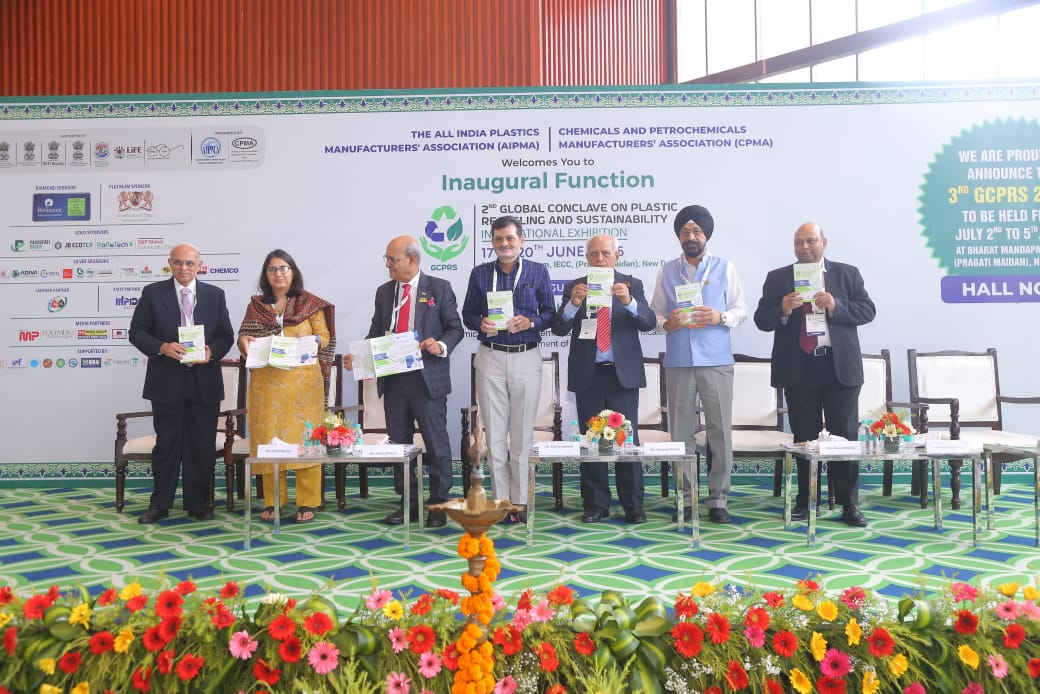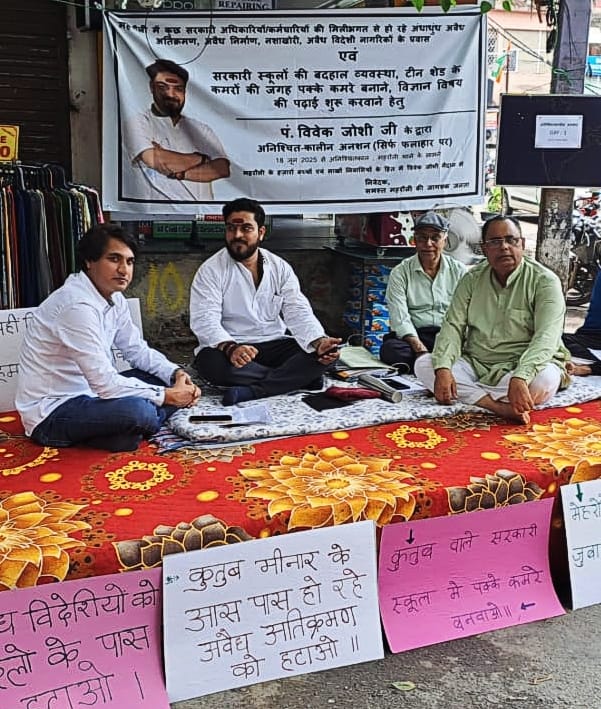Stringent EPR Rules Are Now Becoming Opportunities: Deepak Mishra

• India advancing toward becoming a global model in plastic recycling
• Plastic waste management now a global responsibility
• Emphasis on technology and youth as central to transformation
• Growing potential for the plastic industry
New Delhi: Plastic is no longer just an environmental challenge—it is increasingly becoming a vehicle for economic and technological opportunity. Speaking at the inaugural session of the 2nd Global Conference on Plastic Recycling and Sustainability (GCPRS) held at Bharat Mandapam, Pragati Maidan, Shri Deepak Mishra, Joint Secretary, Ministry of Chemicals & Petrochemicals and Fertilizers, said that the plastic industry has turned stringent regulations like Extended Producer Responsibility (EPR) into opportunities, fostering new possibilities.
“Just as plastic is omnipresent and virtually indestructible, the plastic industry too is resilient and vibrant. It faces every challenge head-on and adapts,” he said.
He further highlighted that nearly 90% of PET (Polyethylene Terephthalate) bottles are being recycled in India, a testament to the industry’s innovation capacity and its willingness to adopt new technologies.
Ms. Vandana, Director at the Department of Chemicals & Petrochemicals, emphasized that plastic waste is no longer a single nation’s problem but a global responsibility. “Governments, industry, and consumers must come together to find collaborative solutions. Platforms like GCPRS play a crucial role in shaping this cooperation,” she added.
Mr. Arvind D. Mehta, Chairman of the Governing Council of AIPMA (All India Plastics Manufacturers’ Association), stated that India is no longer merely a producer of plastic goods; it is progressing toward becoming a global model in recycling efficiency. “We must not view the plastic industry only as a problem—it is also part of the solution. While it plays a vital role in the economy, it also contributes to environmental challenges,” he said.
Mr. Hiten Bheda, Chairman of GCPRS 2025, added that recycling is the bridge that can balance the interests of both the environment and industry. Mr. Manoj R. Shah, President of AIPMA, stressed the need to empower youth not just with technical skills, but also with a strong sense of environmental responsibility.
Speakers at the conference agreed that the future of this sector hinges on technological innovation and active youth participation.
A special exhibition showcased the latest recycling technologies and practical models, particularly in sectors such as pharmaceuticals, automotive, and electronics, drawing wide interest. According to a report presented at the conference, India’s plastic recycling industry is projected to reach USD 6.9 billion in the next 8 years, providing both environmental benefits and economic gains.
The event was supported by key ministries including the Ministry of Environment, Forest and Climate Change, Swachh Bharat Mission, Ministry of Housing & Urban Affairs, Ministry of Commerce & Industry, MSME Ministry, and the Ministry of Chemicals & Fertilizers.
Organizers Siddharth R. Shah, Kailash B. Murarka, Rajesh Gauba, Hanumant Sarraf, and Haren Sanghvi played pivotal roles in the successful execution of the event.
Over 175 companies and organizations from India and abroad participated, with 230+ exhibition stalls and expert delegations from 18 countries, including industry leaders, policymakers, and sustainability experts. and the questions raised and solutions proposed here are expected to shape the future discourse on plastic waste management.
GCPRS 2025 is emerging not just as a conference, but as a global platform for collaboration between environment and industry.





